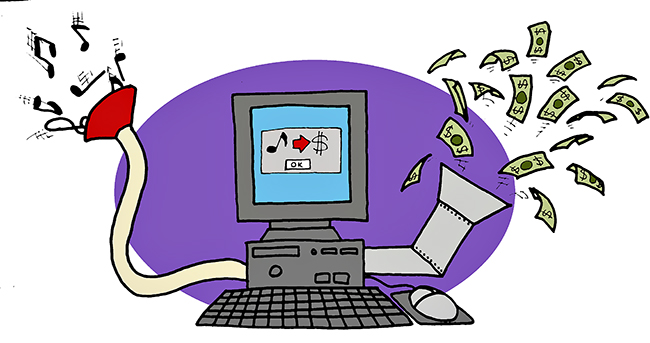Editor's Note: This column appears in a point-counterpoint regarding whether pulling music from online streaming services is beneficial. To read its counterpoint, click here.
Spotify users were probably disappointed last week when they couldn’t say “Hello” to Adele’s new album, 25. She decided not to release her album on the streaming service — a route that some musicians, such as Taylor Swift and Radiohead, have been taking recently, mainly because of Spotify’s low artist payout. The artists’ decision to pull their music from Spotify isn’t a disservice to their fan base, like some would argue; rather it’s just good business.
Music is a service. And like any other service, it is something that one must pay for in order to have the right to listen to. And the amount that one pays for is equitable to that service provided. That is market equilibrium. If the price of a service either goes below or above this equilibrium, then the market will adjust accordingly.
Swift and artists like her understand their music has an intrinsic value. And if these artists believe that the price someone pays for streaming on Spotify doesn’t equate to what the actual value of their music should be, artists will adjust to come back to the market equilibrium. In an op-ed for the Wall Street Journal, Swift wrote about how Spotify devalues music and the reasons she pulled her music from the service.
“Music is art, and art is important and rare,” Swift said. “Important, rare things are valuable. Valuable things should be paid for. It’s my opinion that music should not be free.”
While Spotify itself isn’t free, the amount that it pays artists per user stream is very close. According to the company, Spotify pays less than a cent per play. On average it is $0.007, and it can be higher for higher demanded artists and significantly lower for lower demanded artists.
Although artists putting their music on Spotify won’t directly lead to a decrease of revenue, it does decrease the value of the music that artist provides, which can lead to an overall decrease in sales everywhere else. Simply put, why would anyone buy albums for $5 to $10 when they can stream it for free on their laptops and phones.
While some may argue that Spotify undercuts revenue lost to piracy, comparatively the amount of revenue lost to piracy without Spotify is the same as the revenue lost to the decreasing album sales with Spotify, according to the National Bureau of Economic Research. Spotify within the market is “revenue neutral” for artists, and as a result there really isn’t an incentive for artists to use it. Prominent artists don’t make any more or any less money with Spotify. When the only result to the artist for using Spotify is the devaluing of their service, artists are just better off pulling their music.
Choudhury is an economics freshman from Dallas.





















